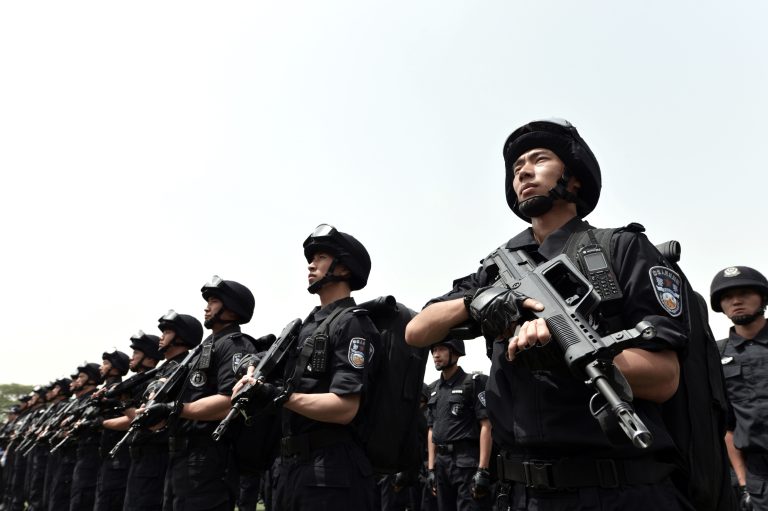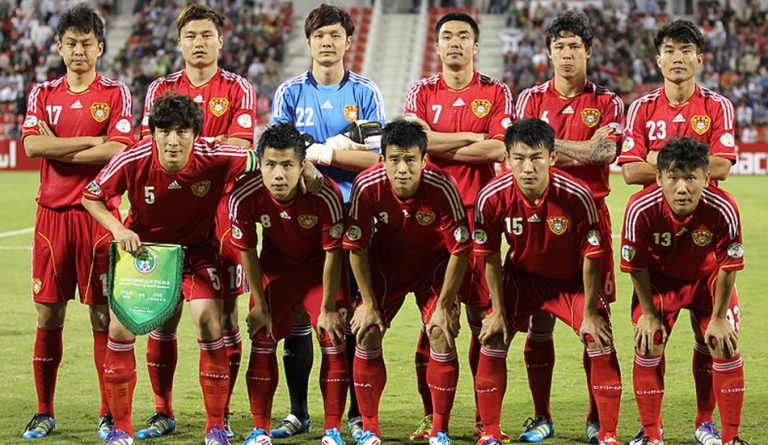News analysis
On June 24, the official website of China’s National People’s Congress listed Ministry of Public Security Party secretary Wang Xiaohong as public security minister. The next day, Wang, a key ally of General Secretary Xi Jinping, unveiled a campaign to put his stamp on public security matters.
The so-called “Hundred Days of Action” aims to combat “prominent violations and crimes” and “resolve various security” risks so as to “victoriously welcome the 20th Party Congress” at the end of the year, according to mainland media reports. The public security ministry later announced that the campaign had resulted in 42,000 cases and led to the arrest of 72,000 suspects as of July 17.
About a fortnight later, the Chinese Communist Party (CCP) authorities moved to formally indict two purged public security vice ministers. On July 8, Sun Lijun pleaded guilty to taking bribes, manipulating the securities market, and illegally possessing firearms at the Changchun Intermediate People’s Court in Jilin Province. On July 11, Changchun prosecutors announced that Fu Zhenghua would be charged with accepting bribes and aiding criminals.
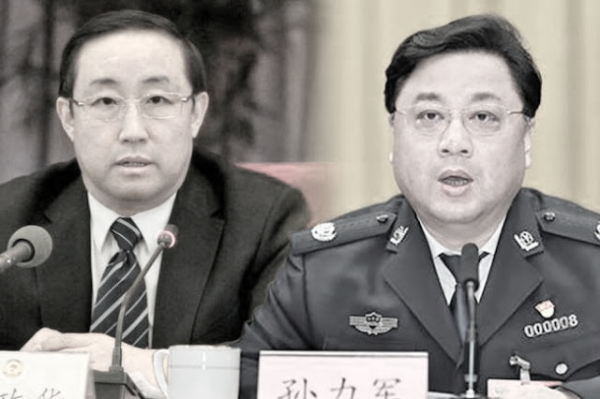
The Xi leadership’s recent moves against wayward elements of the public security system — known as the “knife handle” for its importance in securing Communist Party dominance over Chinese society — and reshuffling of officials in its leadership ranks appears to be aimed at shoring up regime security and minimizing political risks ahead of important political conclaves.
Success
You are now signed up for our newsletter
Success
Check your email to complete sign up
Beijing’s moves also reveal that Xi Jinping is only now more in control of the Party’s “knife handle” after spending a decade wrestling it away from the influence of the Jiang Zemin faction.
Personnel and control
Many China-watchers believe that Xi Jinping has complete control over the PRC government’s various organs and apparatuses by virtue of his leadership position in the Party and state. This is true on paper, but less so the case in practice. Rather, organs and apparatuses tend to act in accordance with the interests of the political patron who oversaw the appointment of key personnel.
The public security system was largely swayed by the Jiang faction during Xi’s first term. Most of the leading cadres, including then-public security minister Guo Shengkun, were either Jiang faction members or owed their careers to the Jiang faction, which dominated Chinese politics from the death of paramount leader Deng Xiaoping in 1997 to the rise of Xi in 2012.
MORE ON POLITICS IN COMMUNIST CHINA
- In Leaked Recording, Elite Chinese Scholar Laments Crippling Dysfunction of Communist Regime
- 3 Key Takeaways From China’s ‘Two Sessions’ Meetings This Year
- Chinese Protesting Frozen Bank Accounts Just the Tip of the Iceberg in Beijing’s Widening Financial Crisis
- Xi vs. Li? Analyzing Political Rumors About a ‘Split’ Between China’s President and Premier
Xi would gradually clear out Jiang faction officials from the public security system through the anti-corruption campaign and personnel reshuffles. At the 19th Party Congress, Xi successfully installed his political ally Zhao Kezhi as public security minister.
Having Zhao in charge, however, did not end Xi’s struggle to consolidate his control over the public security system. Zhao had no prior public security experience before taking the job, which appeared to handicap his ability to properly clean up the public security system.
This June, eyewitnesses exposed what appeared to be collusion between local triads and public security forces in Tangshan city in the high-profile assault of four women at a local barbeque restaurant by gangsters. Later, a local deputy police chief was sacked and five public security officials were investigated. Hebei, the province that surrounds Beijing and where Tangshan is located, was a Jiang faction stronghold for many years.
Wang Xiaohong’s appointment as public security minister is likely intended to help Xi Jinping better address the factional challenges to his control over China’s police.
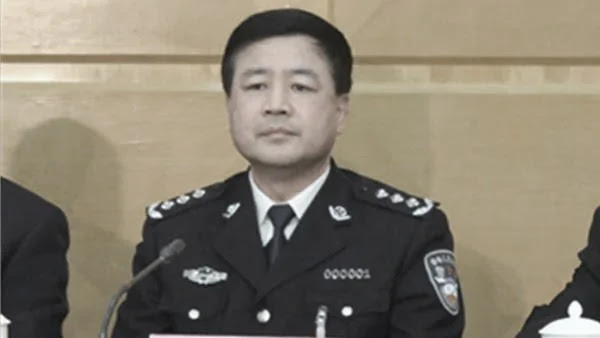
A career police official, Wang’s familiarity with the public security system and its operations would allow him to oversee more thorough “rectification” work. Meanwhile, Wang’s experience in providing security for the Party elite as head of the Ministry of Public Security’s Special Service Bureau gives Xi a leg up in surveilling political enemies and stopping would-be challengers from mobilizing against his leadership.
Wang Xiaohong aside, Xi also made other key personnel changes during his second term. All eight members of the Ministry of Public Security’s leadership team have been reshuffled since the 19th Party Congress. Two of the five public security vice ministers were subordinates of Wang while they were serving in the Beijing municipal public security bureau. In the provinces, four of the current 29 public security bureau chiefs were Wang’s former deputies, including Heng Xiaofan in Tianjin, Li Yaoguang in Jiangsu, Wang Zhizhong in Guangdong, and Qi Yanjun in Beijing municipality.
The Xi leadership has replaced all 31 provincial public security heads since the 19th Party Congress in 2017. Vacancies (Inner Mongolia and Hebei), officials at (Shandong and Ningxia) or approaching retirement age (Jiangxi, Yunnan, Hainan, Jilin), and rotation norms (Sichuan and Tibet) mean that the Xi leadership could appoint another 10 new provincial public security chiefs before the 20th Party Congress.
Placing rivals on notice
The indictments of former public security vice ministers Sun Lijun and Fu Zhenghua come just before the Beidaihe meeting around the mid-July to mid-August period — an informal gathering of current leaders and retired Party elders held on an annual basis in the seaside Hebei Province resort town.
The Xi leadership likely proceeded with those indictments as a way of placing the Jiang faction and his other political rivals on notice, and discourage them from having “improper discussions about Party Central” at Beidaihe.
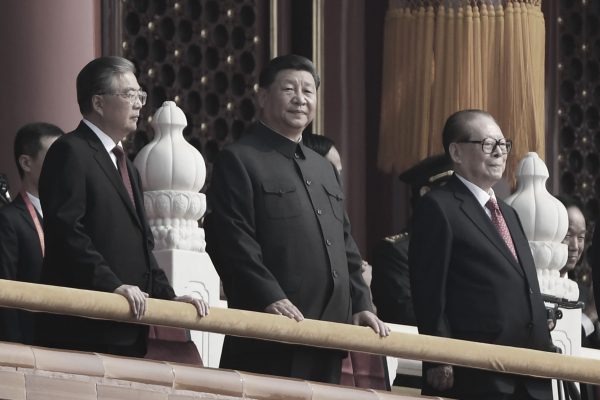
It is notable, however, that neither Sun nor Fu were formally charged with the political crimes that the authorities earlier leveled against them in announcing their expulsion from the Party and their posts.
Sun was said to have “engaged with cliques and factions in the Party, formed gangs and factions, cultivated personal followers, formed interest groups, controlled vital departments with gangs, seriously undermined Party unity, and endangered political security.”
Meanwhile, Fu was accused of having “participated in Sun Lijun’s political gang, formed gangs and factions, and formed interest groups,” “defrauded and deceived Party Central on major issues, endangering the centralization and unity of the Party,” and “long-term friendships with many ‘political liars.’”
- Communist Politics Are Bringing Disaster to China–And Xi Jinping
- China’s Reaction to Biden-Xi Call Exposes Its Fear of International Pressure Amid Russia-Ukraine War
- Does the CCP’s New ‘Historical Resolution’ Give Xi More Power? Not Really.
There are three likely reasons why the Xi leadership “dropped” the political charges against Sun Lijun and Fu Zhenghua.
First, the CCP has generally avoided officially charging officials with political crimes since the downfall of the “Gang of Four” to preserve the Party’s legitimacy and standing among the Chinese people.
Second, the open pursuit and bringing to account of “political gangs” in the regime would greatly provoke Xi’s factional foes and cause unwanted panic within the Party’s rank-and-file. Cadres fearing a purge of “anti-Party groups” like during the Mao era could even throw caution to the wind and launch a coup to avoid being arrested.
Third, Xi could be leaving room to establish “consensus” with his chief rivals on extending his leadership tenure and key personnel appointments at the 20th Party Congress.
‘Maintaining stability’
A totalitarian regime that rules through repression, the CCP always had to grip tightly its “knife handle” to keep the Chinese populace in check and the Party in power. Without its brutal public security system, the CCP would have trouble weathering various crises throughout its seven decades in power and “maintaining stability.”
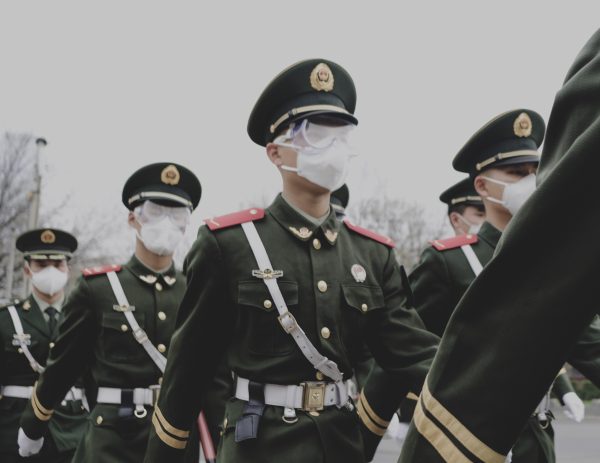
As Xi Jinping noted in many speeches, the Party is currently facing “great changes unseen in a century,” notably a rapidly deteriorating economy, a worsening real estate debt crisis, financial contagion from said debt crisis (including banking sector trouble), and the calamitous economic and social impact of the COVID-19 pandemic and Beijing’s “zero-COVID” measures.
On top of that, the CCP has to deal with the impact of global economic recession and inflation on China, as well as countries becoming more wary of working with the PRC due to various political and geopolitical risks.
For the Party, maintaining tight control over the public security apparatus becomes even more pertinent as social demonstrations like the recent ones in Henan over rural bank deposits become more frequent.
For Xi’s part, establishing his personal power over the “knife handle” is especially necessary given the challenges to his authority within the regime itself.
- Xi Visits Hong Kong as Propaganda Touts Chinese Regime’s ‘Strong Leadership’
- Incoming Hong Kong Leader John Lee Strengthens Xi’s Authority Over City
- Xi Prepares Chinese Military for ‘Non-War’ Operations
To guard against potential efforts by political enemies of Xi to influence the police system into “allowing” protests to spiral out of control — such as the mass protest by military veterans outside the Central Military Commission headquarters in October 2016 — Beijing has been compelled to frequently reshuffle public security officials to minimize their ability to stir trouble.
When the CCP’s various crises boil over, the Xi leadership would definitely turn to the public security system to secure the Party’s security. The ability of the Party’s “knife handle” to “maintain stability,” however, is not without its limits.
Crackdowns by the public security authorities could conceivably make a bad situation worse because they only know heavy-handed measures in responding to protests and other types of social unrest. Self-serving, poorly disciplined, or overzealous public security forces could also aggravate social problems, increasing the blowback to the regime.
Larry Ong is a senior analyst with New York-based political risk consultancy SinoInsider. He was part of the SinoInsider team that forecasted the 19th Party Congress and 2018 Two Sessions personnel reshuffles with a high degree of accuracy.



